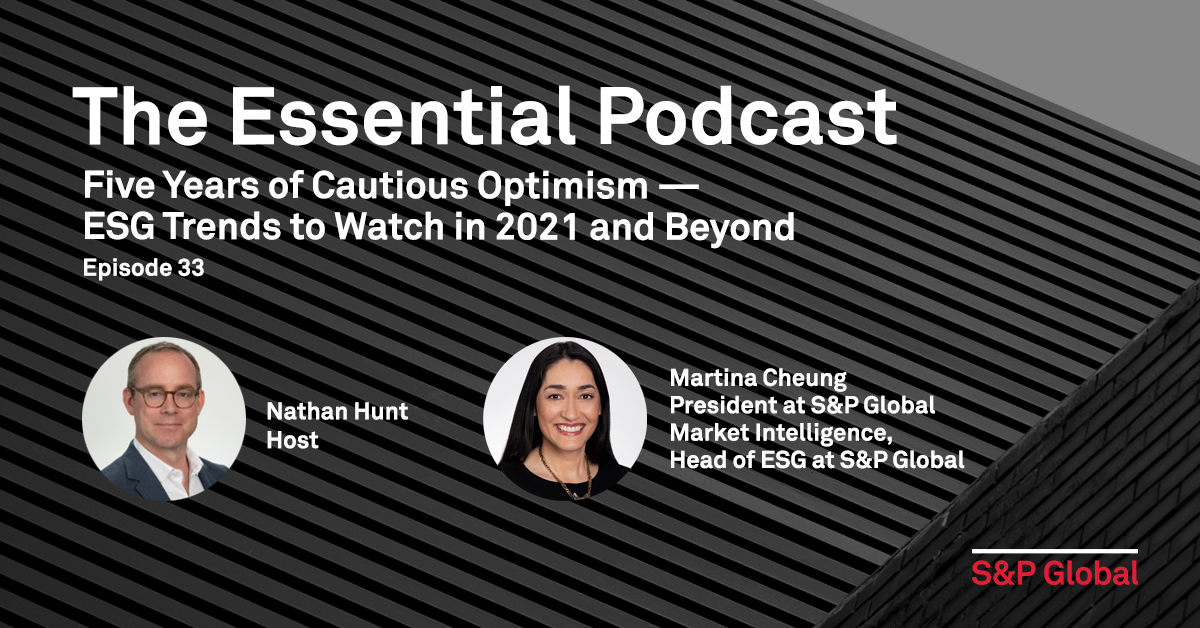Featured Topics
Featured Products
Events
S&P Global Offerings
Featured Topics
Featured Products
Events
S&P Global Offerings
Featured Topics
Featured Products
Events
S&P Global Offerings
Featured Topics
Featured Products
Events
Language
Featured Products
Ratings & Benchmarks
By Topic
Market Insights
About S&P Global
Corporate Responsibility
Culture & Engagement
Featured Products
Ratings & Benchmarks
By Topic
Market Insights
About S&P Global
Corporate Responsibility
Culture & Engagement
Podcast — 16 Mar, 2021

Prior to the global pandemic, environmental, social, and governance (ESG) metrics were enjoying a cultural moment as more companies and investors committed to including such factors in their goals and decisions. Instead of being overpowered by the immediate concerns of the pandemic, the events of 2020 reinforced how we don’t know what is immediately around the corner and brought the need to focus on ESG metrics to the fore. Now, in 2021, that lesson reinforces the view that a long-term, sustainable approach centered around strong ESG principles is more important than ever. Self-described cautious ESG optimist Martina Cheung, President of S&P Global Market Intelligence and Head of ESG for S&P Global, joins the Essential Podcast to discuss the ESG trends to watch this year.
The Essential Podcast from S&P Global is dedicated to sharing essential intelligence with those working in and affected by financial markets. Host Nathan Hunt focuses on those issues of immediate importance to global financial markets – macroeconomic trends, the credit cycle, climate risk, energy transition, and global trade – in interviews with subject matter experts from around the world.
Listen and subscribe to this podcast on our Apple Podcasts, Spotify, Google Podcasts, Deezer, and our podcast page.